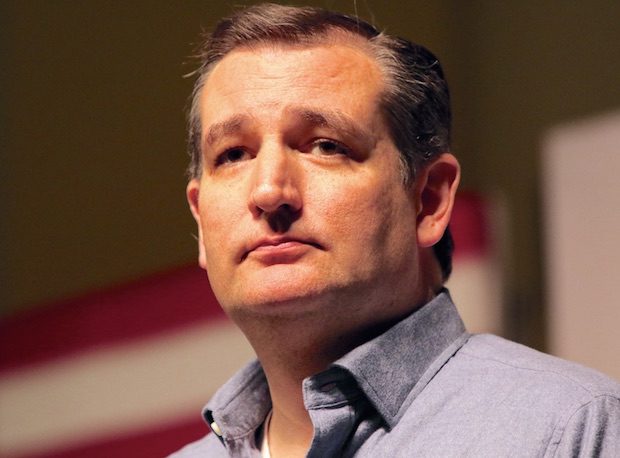Why #NeverTrump Failed

Michael Brendan Dougherty reflects on Cruz’s abject failure in yesterday’s elections:
Why did anyone ever think that Cruz could carry the weight of the #NeverTrump cause?
It’s worth noting that most anti-Trump Republicans really didn’t want to get behind Cruz, and did so only because their other options had been eliminated over the previous months (Perry, Walker, Bush, etc.) or proved almost completely incapable of beating Trump (Rubio). They clung to the hope that some other candidate would be in a position to lead the opposition, and they did that because they had little or no confidence in Cruz. Despite the fact that Cruz was always the only one that could score more than a handful of wins against Trump, Trump’s most committed opponents also convinced themselves that Cruz was not much better. They were forced to accept Cruz as the more tolerable alternative only because every other remotely viable candidate had been driven out of the race.
In fairness to Cruz, the core problem for the #NeverTrump cause is that there simply aren’t that many die-hard anti-Trump Republicans available. Poll after poll has found that a broad majority of Republicans nationally wants the party to accept the top vote- and delegate-winner as the nominee regardless of the final delegate count, and the #NeverTrump faction amounts to maybe a quarter or a third of the party. That’s a substantial minority, but it was divided between different candidates for months and remains so today. Even if it were all united behind one candidate, it wouldn’t be enough to beat Trump in most states. Only in places where Trump’s support has been exceptionally weak (e.g., Wisconsin, Utah) have anti-Trump forces been able to prevail. Dougherty is right that Cruz was a poor fit for the anti-Trump cause, and Cruz’s earlier indulgence of Trump made him a terrible one to lead the attack, but even a more credible and competitive opponent would have struggled and lost. There are simply far more Republican voters that either like or can tolerate Trump than there are Republicans dead-set against him, and there was nothing that Cruz or any other candidate could do about that.
Another reason that anti-Trump Republicans failed at each turn is that they kept refusing to take the threat from Trump seriously long after it became obvious that it was real. As late as January and even February, Trump’s die-hard opponents kept laughing off his chances and telling themselves that most of the party would reject him. They kept repeating the claim that Trump’s support was limited to little more than a third of the party and wouldn’t expand, but there was every reason to believe that his support would keep increasing as the primaries continued. Trump’s opponents kept imagining that they had the luxury of time, but that was as wrong as could be. Trump was only going to get stronger as the primary schedule moved to the Northeast, and so the time to stop him was in March or February before he could confirm his status as the front-runner. They believed their own propaganda, or perhaps they simply had no clue what most people in the party thought, or perhaps it was some of both. The result is that they made no effort to coordinate against Trump early when it might have been possible to stop him, then refused to adjust after Trump’s first set of victories, and all the while most kept clinging to a fantasy that Rubio would save them. As Damon Linker notes in his column today, the anti-Trump Republicans have been in denial about the extent of Trump’s support and the likelihood of his winning the nomination for months, and that denial has ensured that their opposition to him would be as disorganized and incompetent as possible.
Comments